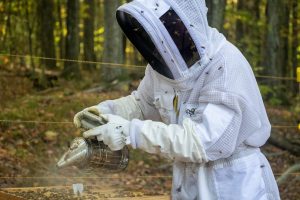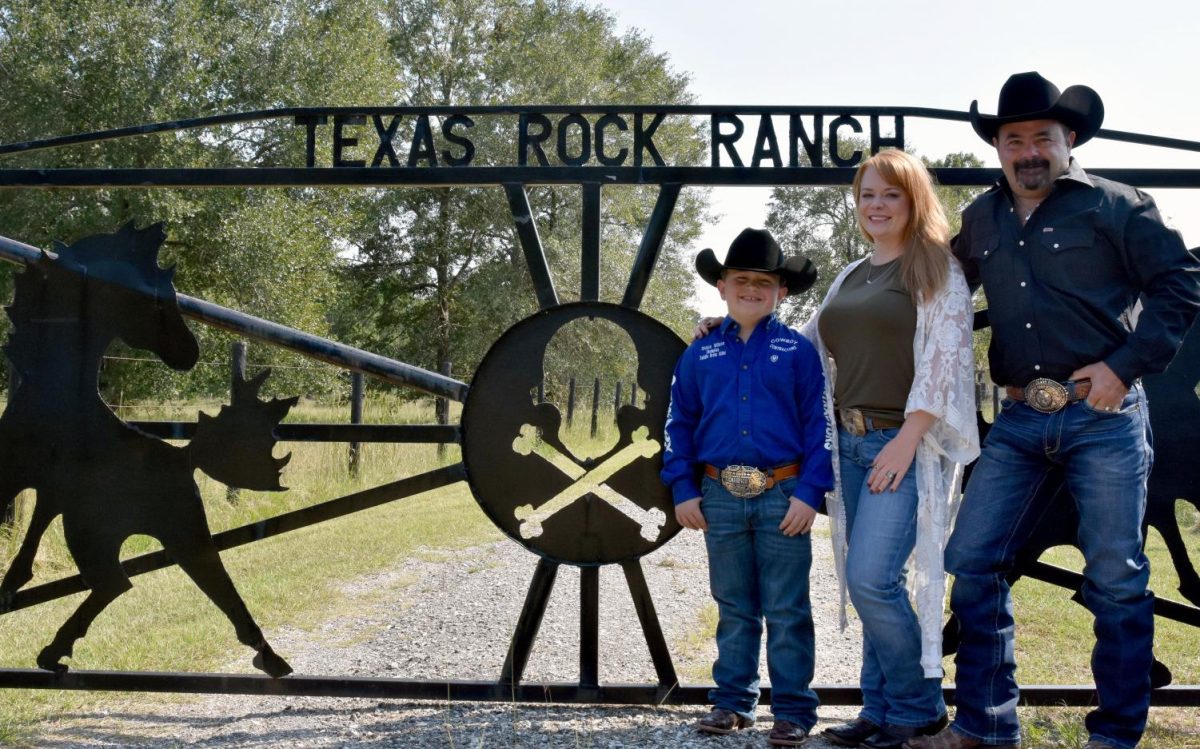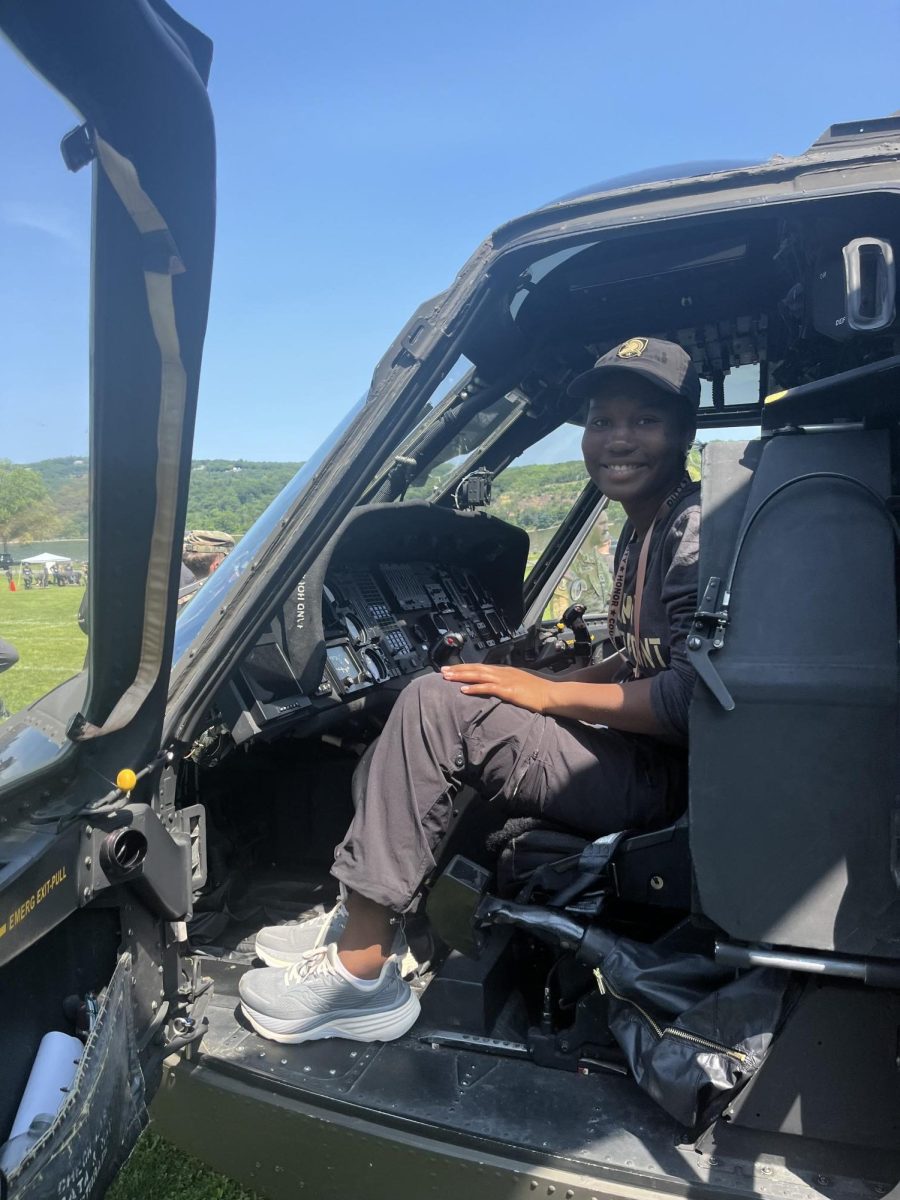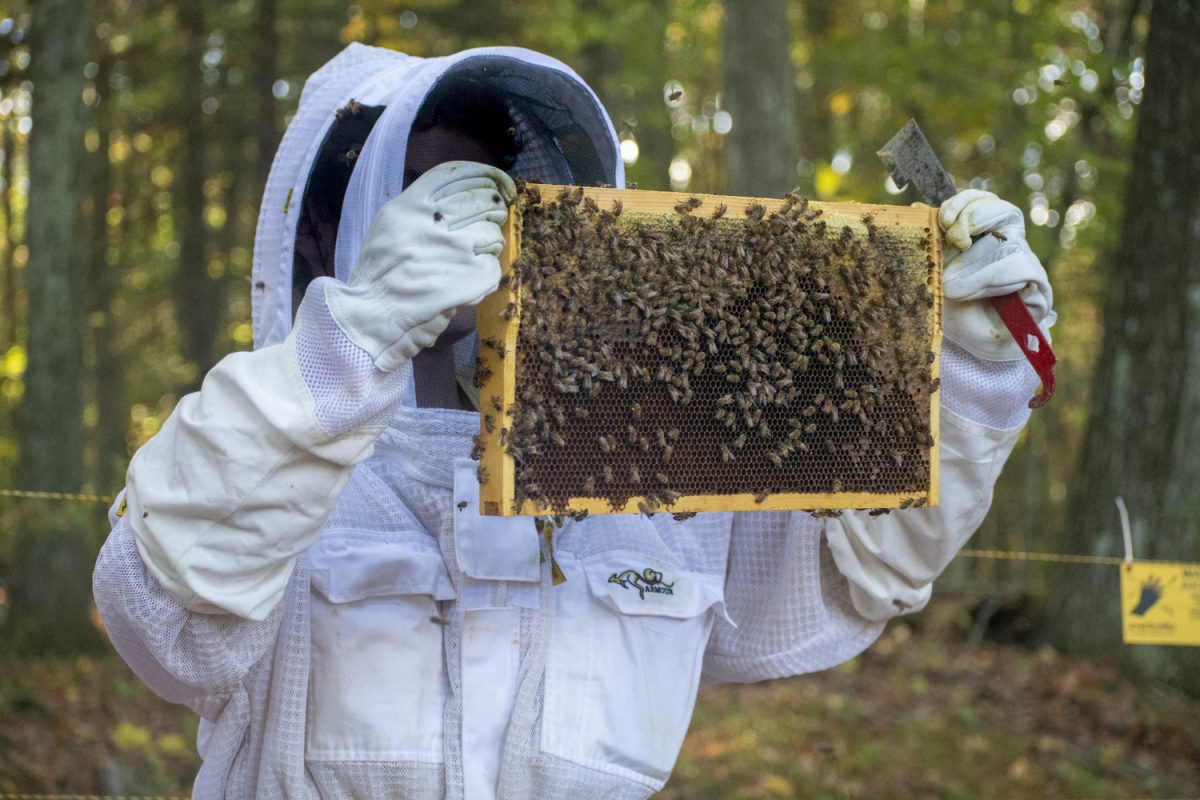In the warm sun, surrounded by buzzing insects and sweet honey, freshman Benjamin Probst is in his comfort zone.
Throughout his life, Probst has enjoyed spending time surrounded by agriculture and unique animals. As of now, he has 21 chickens, one axolotl and two beehives. In 2014, his dad bought beehives from a Kickstarter company, but it was not until 2022 that they bought around 10,000 bees.
Probst’s initial expectations for beekeeping were different from the actual practice.
“When I first started, I thought it would be to just set up the hives, then let them be and harvest the honey a few times a year, but it’s a lot more active than that,” Probst said.
Probst usually inspects his Italian honey bees during the middle of the day, when it’s the warmest and easiest time to check on them. The inspection is not an easy task, requiring a lot of physical labor.
“The honey supers [an extra, wooden box added to a beehive for honey storage, placed above the main hive structure] can get up to 80 pounds when they are full of honey, and you can have three or four boxes on a hive,” Probst said. “So, trying to inspect the very bottom box, you have to take all the boxes off on top of it.”
The frequency of Probst’s hive inspections depends heavily on the season. During the summer, he usually checks them once or twice a week. In the winter months, Probst checks on them significantly less to protect the bees and overall hive.
“We want to maintain the warmth in the hives, so we go less,” Probst said. “[The bees] maintain the hive at 95 degrees Fahrenheit all throughout the winter to protect the queen. Every time we open the hive, cold air gets in, so we try to do it every month or two.”
Although it can be grueling, the experience has given him more knowledge about insects and helped him explore his passion.
“I’ve definitely learned a lot about these smaller creatures,” Probst said. “The reward is definitely enticing with the honey. It’s been really fun to work with them and learn about how the whole hobby works.”
Probst has gained a deeper understanding of how bees behave. Beekeeping has also allowed him to understand common misconceptions about bees, specifically those that are connected to people’s fear.
“I think a lot of people are scared of bees, and that comes a lot from wasps and other carnivore bee creatures,” Probst said. “They are really calm when you actually go in to inspect… They don’t want to hurt you. The only reason they are going to hurt you is if you kill a bunch of them and they see you as a threat.”
In addition, he realizes that in order to become a successful beekeeper, he needs to be mindful and cautious when handling them.
“Killing a few bees is not much of a problem; it’s like cutting hair, but you should try to be as careful as possible,” Probst said.
Throughout his journey, Probst has developed connections with people who have years of beekeeping experience. He believes the only way to improve his skills is to learn more about beekeeping from them and maybe even gain some of their supplies. One of them was Jim Hegarty, a clerk for the town of Southborough.
“We got some of our beekeeping stuff from him,” Probst said. “He had 10 frames, but since he is getting older and they are so heavy, he is moving to eight frames. So, we inherited some of his 10-frame stuff.”
Hegarty has been beekeeping for the past 10 years, after his wife forced him to take classes in Worcester, and now has five hives. He is participating in research and taking classes at Cornell University in order to become a master certified beekeeper. Hegarty knew Probst’s father beforehand and provided Probst with supplies, such as supers and frames. The Probsts even visited his home to see his hives in person.

“I opened up the beehives and showed them what different beehives can look like,” Hegarty said. “I was able to show them what hives are stronger than others, where the queens are laying more eggs, so they could compare them.”
Sticking to a tight schedule and planning well were just some of Hegarty’s advice to Probst. Hegarty recalls that his most important advice is to have multiple hives.
“That’s the best advice I give to a new beekeeper: don’t start with one beehive, start with two,” Hegarty said. “Otherwise you will have nothing to compare it against.”
Hegarty sees the potential in Probst to be an excellent beekeeper due to his commitment and genuine desire to learn more.
“He’s just a really good guy overall,” Hegarty said. “That’s how you get better at something. When you say, ‘Hey, how can I do this better,’ or ‘Why did this happen?’ You have to be curious, and he is very curious, which is a wonderful thing.”
Probst acknowledges that beekeeping is not just about creating a comfortable environment for the bees but for himself as well.
“The bees, they want to build out their hive in a way that works for them,” Probst said. “Beekeeping is so that it works for us so that we can harvest honey and maintain the hive well.”
While Probst does not have any definite plans yet, he has begun to think about his future in beekeeping.
“It’s definitely a possible career choice, but to be a professional, you need to have hundreds of hives,” Probst said. “We would need to build out quite a lot, but it would definitely be a fun job.”
This story was originally published on The Harbinger on November 25, 2024.






































